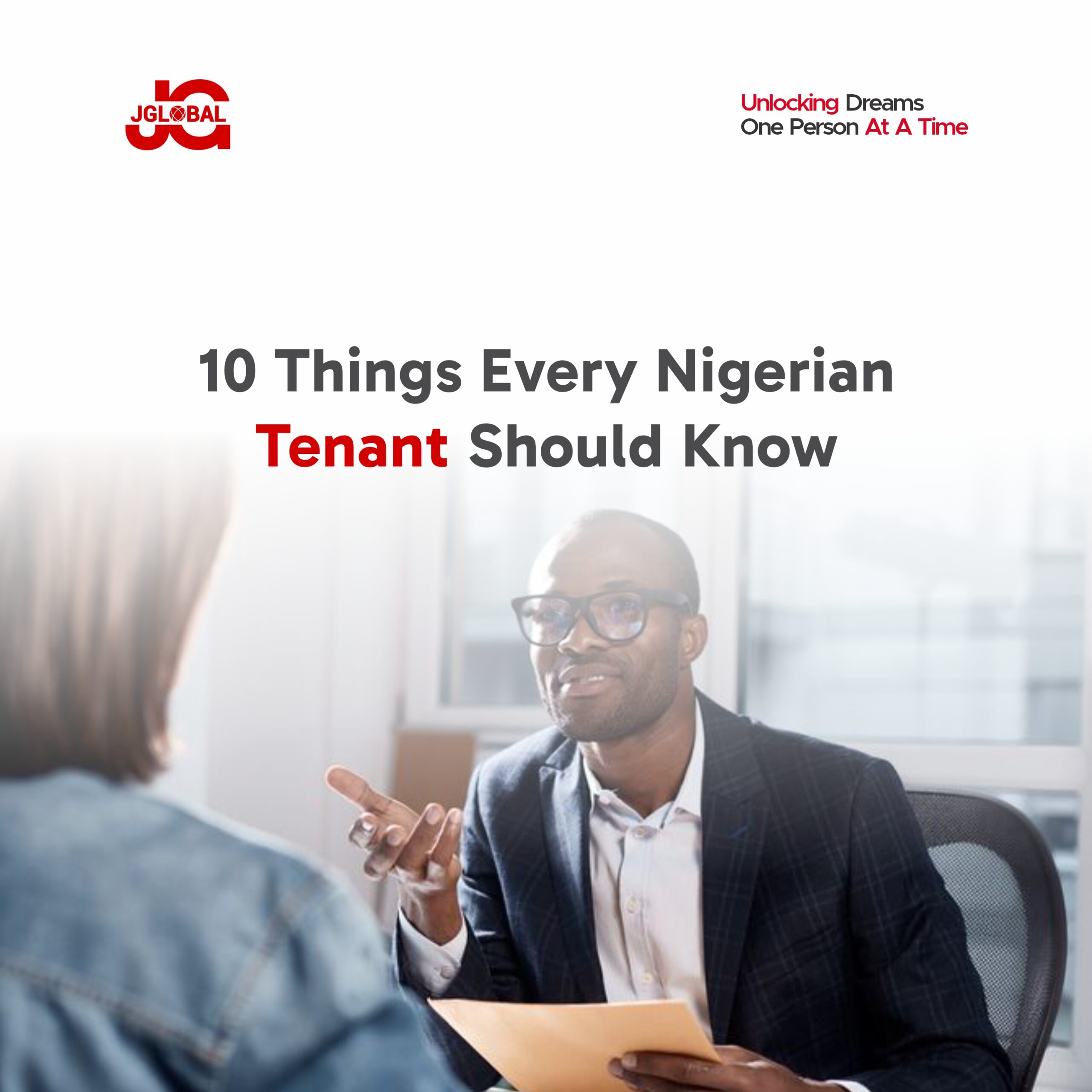10 THINGS EVERY NIGERIAN TENANT SHOULD KNOW

INTRODUCTION
If you are a tenant, you are probably no stranger to disputes with your landlord. From disagreements over rent payments to arguments about maintenance and repairs, it’s not uncommon for landlords and tenants to be at odds with each other. In fact, many tenants have horror stories to share about their experiences with landlords, and vice versa.
But what if we told you that many of these disputes could have been avoided? And by knowing your rights and responsibilities as a tenant, you could minimize the risk of disagreements with your landlord and ensure a smoother, more enjoyable rental experience.
In this post, we will share 10 essential things every tenant in Nigeria should know. Whether you’re a seasoned renter or a first-time tenant, these tips will help you successfully handle the often-complex world of renting with confidence.
Here are the 10 things every tenant in Nigeria should know:
- Knowing Your Lease Agreement
Before you start your rental journey, it’s essential to have a proper lease agreement in place. This is a binding contract between you and your landlord, so take your time to read and understand the terms and conditions before signing. If you’re unsure about any clause, don’t hesitate to ask your landlord or a lawyer to explain. A good lease agreement should clearly outline the rent amount, payment schedule, lease duration, specific terms and conditions, and the responsibilities of both the tenant and the landlord.
- Understanding Your Rent
Knowing how much rent you will be paying is important before signing a tenancy agreement. Make sure to clarify if the rent includes additional costs like utility bills, maintenance fees, or security charges. You don’t want any surprises down the line.
- Understanding All Hidden Cost
In addition to rent, there may be other costs associated with renting a property. As a tenant, you may be responsible for maintaining certain aspects of the property, such as paying utility bills or maintaining the compound. Clarify your responsibilities with your landlord to avoid disputes. Rent is just the beginning; be prepared for maintenance charges, security deposits, agency fees, utility bills, and parking fees if applicable. Ask for a complete breakdown of all expenses before signing anything.
Read more on Closing Costif you are looking to own a property.
- Know The Importance of Documentation
Communication is key in any rental arrangement. Send maintenance requests via email or text, keep records of all communications, take dated photos of the property condition, and get receipts for all payments. This documentation can be crucial if disputes arise.
Read this to understand why documentation is important.
- Knowing Your Rights as a Tenant
As a tenant in Nigeria, you have rights protected by law. Familiarize yourself with the Nigerian Tenancy Law and know what to do if your rights are violated. Many tenants don’t realize they have legal rights. For instance, landlords cannot arbitrarily increase rent without notice, and you have the right to a habitable living space. Landlords must provide proper maintenance, and illegal eviction is a serious offense. Knowledge is power.
- Understanding Eviction Procedures
It is essential to understand the legal eviction procedures in Nigeria. Landlords must provide written notice, and there are specific timeframes for different types of eviction. Tenants have rights against illegal eviction, and some states require court orders for eviction.
- Inspecting the Property Before Moving In
Before paying for a property, do a comprehensive inspection. Check for structural damages, test all electrical outlets, inspect plumbing, look for signs of pest infestation, and photograph and document everything to help prevent disputes. You don’t want to move into a property and discover the structure is damaged.
- Avoiding Rental Scams
The rental market is also notorious for scams. Be cautious of requests to pay before viewing the property, unusually low prices, landlords who are always “unavailable” to meet, pressure to make immediate payments, and vague property details. Always verify the property owner before making payments or moving into a property.
- Considering Rental Insurance
While not common in Nigeria, rental insurance can protect you from personal property damage, liability in case of accidents, and temporary relocation costs.
- Seek Professional Help When Needed
If you are experiencing difficulties with your landlord or need advice on your tenancy agreement, don’t hesitate to seek professional help. Consult with a lawyer or a real estate expert to ensure your rights are protected.
CONCLUSION
Renting in Nigeria doesn’t have to be a stressful experience. With the right knowledge, you can protect yourself and ensure a smooth tenancy. Remember, an informed tenant is a confident tenant.



